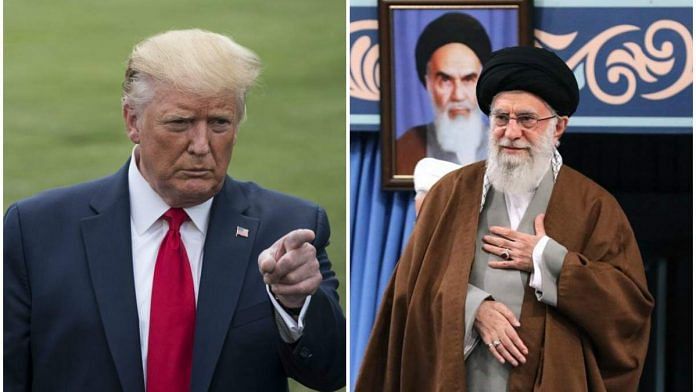Even for a regime that rejoices in reckless endangerment — of its own people, of regional stability, and of the world order — Iran’s proxy strike on a military base near Baghdad last night was exceptionally rash. Two Americans and a Briton have reportedly been killed by the rockets that struck Camp Taji; the number of Iraqi casualties is not yet known.
U.S. President Donald Trump, who has defined the taking of American lives as a red line, is now obliged to strike back. After the last major Iranian attack, he repeatedly downplayed the head trauma inflicted on U.S. soldiers as mere headaches, saying that he had “stopped something that would have been very devastating for them” because none of the soldiers had been killed.
This time it will be hard for the president to argue that the deaths of two Americans don’t merit retaliation. The only question is when, where and upon whom Trump’s retribution will descend.
We should assume—or hope—Trump will not carry through on his mindless Twitter threat to strike at Iranian cultural sites, “VERY FAST AND VERY HARD.” (Boldface, his.) But even if the punishment is inflicted on Iraqi Shiite militias that act as Iranian proxies in Iraq, there is a substantial risk of escalation.
The risk is not only on the American side. For one, Tehran will find itself having to provide more and more support to its proxies in Iraq. But that may be the least of the regime’s worries. As Trump has already demonstrated with the killing of Iranian General Qassem Soleimani, the U.S. is prepared to extract direct retribution on senior regime figures.
You’d think inviting such an escalation would ill suit the Islamic Republic at a time when it is grappling with several overlapping crises — the coronavirus outbreak, the effects of the Saudi-Russian oil war, widespread public distrust of the leadership and growing international concern at its nuclear brinkmanship.
The attack came a day after the regime pleaded with the U.S. to lift sanctions that, it claimed, were hindering imports of medicines and food needed to fight the coronavirus outbreak—and a day before it sought $5 billion from the International Monetary Fund for that same purpose.
So why bait Trump — and tempt fate — now?
It might be merely a matter of habit: The regime simply can’t help playing fast and loose. Despite the perception in some quarters of Washington that Iran’s leaders are artful schemers, their default tendency has been to keep testing American tolerance. Only the caution—and occasionally, credulity—of U.S. presidents has prevented catastrophe. What better demonstration of recklessness than the fact that the Iranians have continued to dance on the knife’s edge when the implement is being wielded by someone as clumsy as Trump?
It is conceivable someone in Tehran thought firing rockets in the general direction of some Americans would be a good way to commemorate the birthday of the slain Soleimani, and a welcome distraction from, well, everything else. At a time when Iranians are disgusted with their government’s incompetence, a desperate regime might think it expedient to invoke the memory of the one public figure who still enjoys widespread admiration.
A more charitable explanation is that Soleimani’s death has left too much slack in the strings with which he controlled the proxies. Replacing terrorist masterminds isn’t easy, and the new puppet-master — Esmail Ghaani now commands the elite Al Quds Force — may not be able to exercise as much control over the Iraqi Shiite militias as his predecessor did.
That’s the spin most likely to be offered by Iran. As it contends with all the other crises, the regime will hope that Trump — who, let’s face it, has a few of his own — finds it convenient to portray the attack on Taji as the work of a militia leader gone rogue. As the rest of the world holds its breath, fingers in Tehran will be tightly crossed that he doesn’t retaliate with something that would be “very devastating for them.”
But relying on Trump to show restraint is the very height of recklessness. –Bloomberg
Also read: As US-Iran tensions mount, what India can learn from the oil ‘tanker war’ in 1980s



